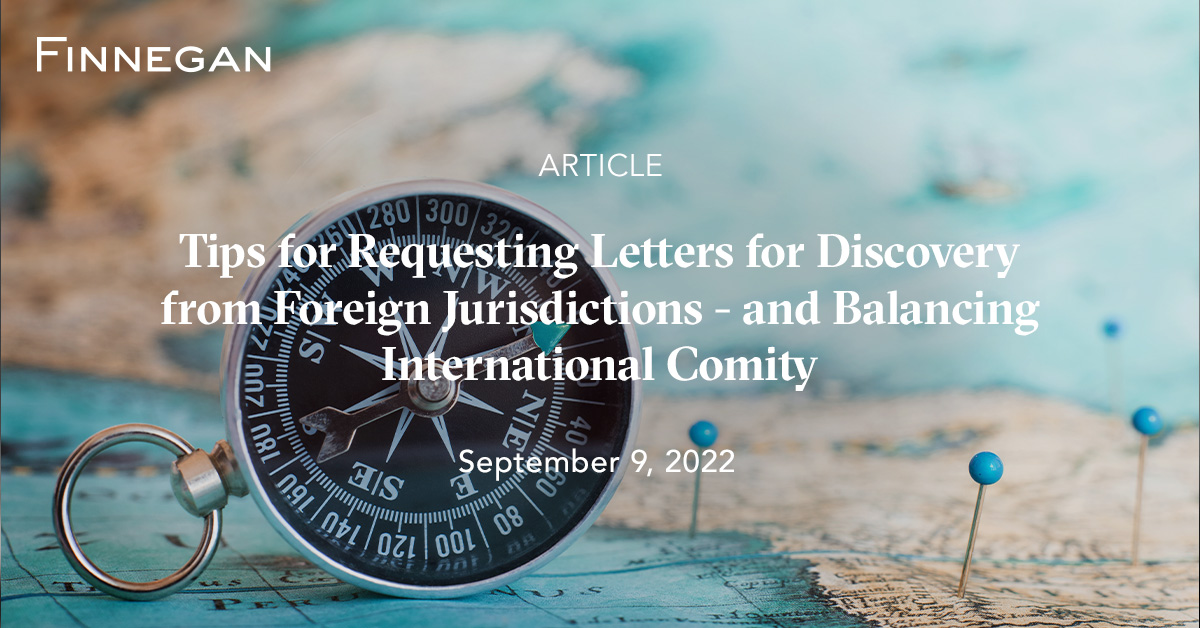The Duty of Letters Rogatory in Criminal Investigations Across Borders
The Duty of Letters Rogatory in Criminal Investigations Across Borders
Blog Article
Letters Rogatory Explained: Facilitating Legal Collaboration Between Countries

Definition of Letters Rogatory
Letters rogatory are formal requests made by a court in one jurisdiction to a court in one more jurisdiction, looking for support in getting evidence or testimony for a legal action. This procedural system is important in the context of global legislation, where legal systems may vary, and cross-border cooperation is required. Letters rogatory facilitate the celebration of information that may be crucial for adjudicating situations, particularly in instances entailing intricate transnational concerns.
Usually, these demands emerge in civil, criminal, or management matters where a celebration requires evidence that lies outside the territory of the asking for court. The letters offer as a method to make sure that the concepts of due process are supported, making it possible for courts to access evidence that may or else remain hard to reach because of lawful or geographic obstacles.
Making use of letters rogatory is governed by worldwide treaties, reciprocal contracts, or residential legislations, which delineate the treatments and obligations of the courts entailed. It is necessary to note that the implementation of such requests is not ensured; they rely on the laws and practices of the jurisdiction obtaining the letter. Hence, letters rogatory are a pivotal device for fostering lawful participation and making sure justice across boundaries.
The Process of Issuing Letters Rogatory
Issuing letters rogatory includes an organized procedure that ensures compliance with both global and domestic lawful standards. Originally, the asking for party, normally a court or lawful authority, prepares a formal demand describing the nature of the help sought, the evidence or details required, and the lawful basis for the request. This record must be accurate to assist in understanding by the international jurisdiction.

The following action entails transmitting the letters rogatory to the assigned foreign authority. This is often done with polite channels or international lawful assistance structures, ensuring that the request is gotten and acknowledged by the international court. The international court after that refines the request according to its own legal treatments, eventually replying to the requesting party with the sought-after info or evidence, therefore helping with global legal participation.
Significance in International Regulation
The significance of letters rogatory in global legislation can not be overemphasized, as they serve as an important device for judicial cooperation throughout borders. These formal requests for aid in lawful matters allow courts in one jurisdiction to inquire, evidence, or the presence of witnesses from an additional jurisdiction, thus helping with the administration of justice in transnational situations.
Letters rogatory are particularly vital in the context of globalization, where lawful conflicts typically span numerous countries. They allow the collection of evidence that could or else be hard to reach, making sure that lawful procedures are notified and fair. By promoting cooperation between judicial systems, letters rogatory aid promote the policy of legislation and promote shared respect amongst countries.
Moreover, using letters rogatory shows a commitment to international standards and concepts of collaboration, showing the interconnected nature of modern-day legal techniques. It illustrates the significance of sticking to recognized treatments and treaties, such as the Hague Convention, which offers a framework for these requests - Letters rogatory. Eventually, letters rogatory boost the efficiency of legal processes, making sure that justice is not hindered by geographical limits
Challenges and Limitations
In spite of their importance, letters rogatory face numerous obstacles and constraints that can hamper their efficiency. One main concern is the differing lawful frameworks and procedures throughout territories, which can bring about misconceptions and delays in the execution of requests. Different countries might have distinctive needs for the credibility of letters rogatory, making complex the procedure further.
Furthermore, the frequently lengthy nature of international lawful participation can prevent timely accessibility to proof or witnesses. This hold-up may adversely influence legal process or ongoing examinations, specifically in instances calling for urgent action. The lack of sources and training in some jurisdictions can result in not enough handling of requests, leading to poor or incomplete feedbacks.
Social differences and differing perspectives towards lawful processes can additionally position substantial obstacles. For circumstances, her latest blog nations with less formal legal systems might struggle to follow the step-by-step roughness expected in letters rogatory. Political tensions between nations can influence the readiness to carry out requests, resulting in an absence of teamwork and reducing the utility of this device in worldwide law. These challenges necessitate constant dialogue and reform to enhance the efficacy of letters rogatory in lawful teamwork.
Study and Instances

Conversely, obstacles can emerge, as seen in a case involving a European country seeking proof in an ongoing criminal matter from a non-EU country - Letters additional info rogatory. The procedure was postponed as a result of administrative obstacles and differing legal standards, inevitably preventing the investigation
These examples illustrate that while letters rogatory can facilitate international participation and expedite legal procedures, they additionally highlight the demand for clear communication and understanding of legal frameworks in between countries. Such case studies highlight the importance of refining this device to improve performance and effectiveness in international lawful issues.
Final Thought
In summary, letters rogatory serve as a crucial mechanism for assisting in lawful teamwork in between nations, making sure the collection of proof and testimony across territories. Their significance in international legislation can not be overemphasized, as they advertise due procedure and improve the performance of cross-border lawful process. Challenges such as differing legal structures and political tensions might prevent their efficiency. Continued efforts to improve and improve the procedure are vital for fostering stronger global judicial cooperation.
Letters rogatory are formal requests made by a court in one jurisdiction to a court in an additional territory, seeking assistance in getting proof or statement for a lawful case. The requesting party, generally a court or lawful authority, drafts an official demand detailing the nature of the assistance looked for, the evidence or info needed, and the lawful basis for the request. The foreign court then processes the demand according to sites its very own legal procedures, ultimately reacting to the requesting event with the desired details or evidence, hence helping with worldwide legal cooperation.
Additionally, the use of letters rogatory shows a commitment to international standards and principles of cooperation, showing the interconnected nature of modern lawful practices.Global lawful cooperation with letters rogatory is not without its real-world effects, as shown by numerous case researches that highlight both obstacles and successes.
Report this page